– Bob Bahr reporting, Editor PleinAir Today –
Greg McHuron wasn’t as famous as he could have been, perhaps because he wasn’t a joiner. But the artists he mentored and painted with attest to his knowledge and inspiring approach. Now his words, ideas, and images are gathered in a book, a repository of his wisdom.
Lead Image: “Moraine Lake Morning,” by Greg McHuron, oil, 16 x 24 in.
Let’s get one thing out of the way: McHuron was a curmudgeon. “Greg was a strongly opinionated person, and he believed heartily in painting what you know, and painting from the heart,” says Susan Hallsten McGarry, the author of Gregory I. McHuron: Plein Air Master and Mentor. “Almost all of his quotes say that in one way or another. He was a curmudgeon in many ways, but once you got to know the guy, you found that he was more a teddy bear than a grizzly bear.”
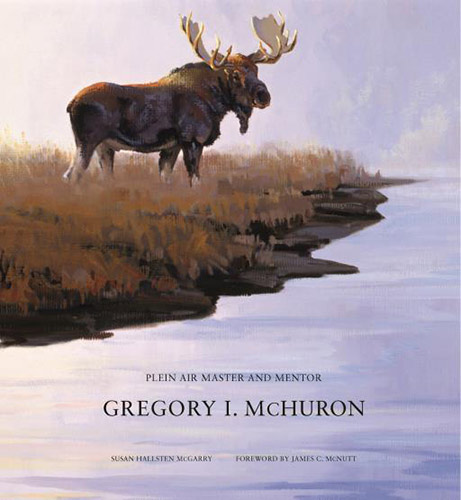
McHuron’s gruff exterior didn’t stop him from becoming a key mentor to many painters in the Grand Teton area of Wyoming, and beyond. “He wasn’t a joiner, but he painted with people as much as he could,” says McGarry. “He was an inspiration to a lot of plein air painters with whom he painted in the Jackson area. After an entire day of painting, they would go to a bar in Moose, Wyoming, and Greg would put a piece of paper in front of who he had been out painting with and say, ‘Now I want you to draw what you have been painting.’ His idea was that you should be able to draw it automatically; you should have been so immersed that its essence was embedded in you. That frame of mind lets you paint from your heart. That is the most important thing to capture.”
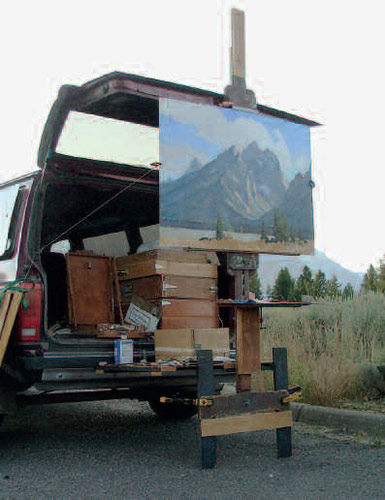
McHuron’s home turf, the area around Grand Teton National Park, is rugged country. That suited McHuron, who lived in Alaska as an adolescent and painted in the Yukon for fun. The artist would take some liberties with the scene in front of him, both in composition and color, but one thing he would not alter was the contour of the Grand Tetons. For those, he felt one had to capture the likeness. “He said you had to be totally faithful to the profiles of the mountains, but you could move it around and shift it to make a compelling composition,” says McGarry. “Nature doesn’t always compose perfectly. The foreground, sky, and general composition were up for grabs. But the Tetons were inviolate. You captured those profiles as they were.”
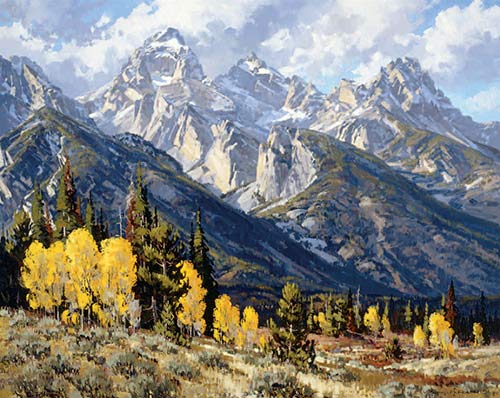
McHuron identified himself as an animal artist, even though his paintings — even those stretching 72 inches wide — were mostly completed outdoors. His animals were added in the studio, and were arguably supporting players for his landscapes. The inclusion of wildlife in the pieces often discouraged the perception that he was a plein air painter, and his large format worked against him in the plein air world. “He worked very large,” McGarry says. “That was another thing that made him exceptional. Greg worked on board a lot due to weather conditions that made painting on canvas difficult. He regularly painted on 40”, 60”, and 72” boards, returning to a location when he needed to. But he would finish in the studio. Greg would say that plein air was a tool that made his paintings better — it was not a claim to fame.” The Rocky Mountain Plein Air Painters had a size limit on pieces submitted to their competitions. They finally had to drop that rule because it grieved them to disqualify McHuron’s work.
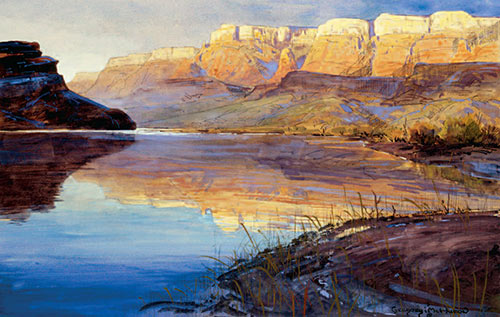
The second half of McGarry’s book centers on accounts from fellow painters explaining what they learned from McHuron. Within these quotes are many things McHuron said to them that they remembered verbatim and carried with them in their heads as they painted. “He was a great quote,” says McGarry. “He was quoted endlessly in local, regional, and national press, and many of his quotes were quite profound.”
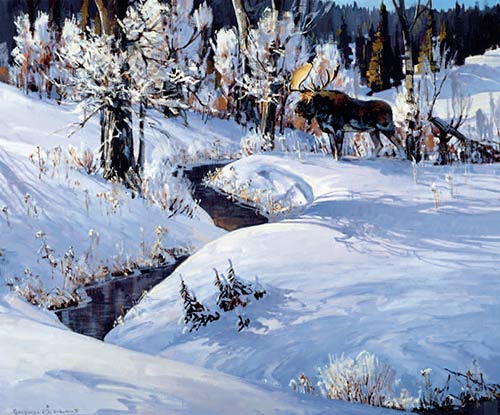
McGarry shared one anecdote illustrating this point. “At the 2011 RMPAP show, Robert Hagberg asked for a critique. McHuron gave him what Hagberg believed to be the earmark of authenticity: ‘Greg pointed out areas where the painting could stand some improvement. Then he told me to read everything, study everything, absorb it all … and then throw it out and paint from the heart. He said that the world doesn’t need any more wannabes … the world needs you.’”
To order McGarry’s book Gregory I. McHuron: Plein Air Master and Mentor, go here.




